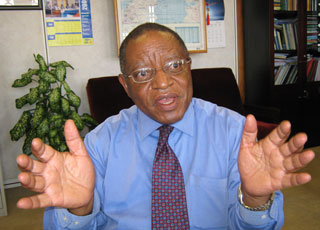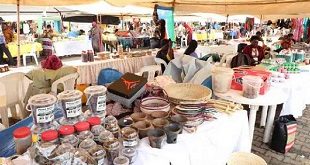
Urbanization effect
Urbanisation has also turned out to be an area of concern in the last 32 years. Government data indicates that the rate of urbanisation is 4.5% per year and up to 13% of Uganda’s population now lives in urban areas. The Government estimates that by the year 2030, up to 20 million people will be living in urban areas.
This is not good news entirely because the poor are running away from poverty in rural areas and finding the same poverty in urban areas. Recent reports from UBOS indicate that poverty levels in the country have increased from 19% five years ago to around 28% today. Drought and some external market shocks have been cited as causes.
But some people say this could serve as a wakeup call to government that must deal with this matter through its spending priorities in the budget and general trade facilitation activities.
Once done, going forward, it would keep its (government’s) Vision 2040 dream of transforming the economy from a peasant to a modern and prosperous country in 30 years alive.
But why are experts concerned
Ddumba Ssentamu, a professor of economics and former vice chancellor of Makerere University has a summary of Uganda’s economy under the NRM.
“Uganda can be best described as a country that has attained growth without development,” he told The Independent on Jan.20.
He said that many things are growing in number; GDP, education institutions, private companies, health facilities, roads, power dams, schools and enrollment but quality is the problem.
“What we have is quantity but not quality; and that is where the problem is,” Ssentamu said.
Going forward, he suggests, for the economy to gather more momentum of growth, create opportunities in terms of jobs and more, “the country needs serious planners” to wisely allocate resources in the budget and ensure it is properly spent to attain value for money. He also said Uganda Revenue Authority needs to up its collections by building more capacity in her system to deal with informal businesses that are currently outside the taxpaying bracket.
Policy reversals needed
Isaac Shinyekwa, a research fellow at the Economic Policy Research Centre (EPRC) at Makerere University told The Independent the NRM government should be credited for transforming the economy from where it was in 1986 to where it is now.
He said in reference to growing per capita income, tamed inflation, increased road network, electricity generation and access, schools, health facilities.
However, he says that government needs to do policy reversals and rethink its liberalization stance and be part of business by owning more parastatals.
“I think we over opened our market; it has cost us a lot given that investors are allowed to take out 100% of their money,” he said.
He says that government must put more money in productive sectors – agriculture, industry/manufacturing to support the economy.
He also suggests that government should further reduce the cost of doing business through extension of cheap credit to the private sector through Uganda Development Bank; cut its domestic borrowing and resort to external borrowing which is even cheaper.
Surprisingly, even those who desperately supported SAPs to apply in Uganda now have mixed feelings about them.
In his book titled; Advancing the Ugandan Economy- a personal account – Ezra Suruma, the former minister of finance says while history is likely to judge the NRM leadership harshly for allowing the IMF/WB to interfere with the country’s sovereignty by taking up Structural Adjustment Programmes (SAPs).
It is important to note that after 10 years of brutal exploitation and rampant theft by Amin’s regime, Uganda’s national treasury was empty, virtually all economic infrastructure had been destroyed and the people were facing extreme hardships.
Suruma says the NRM recognised the need for emergency funds to restore basic government services and get the economy moving.
However, Suruma warns; “…many African countries that took up the IMF/WB policies needed and still need to focus their attention on creating governance structures capable of encouraging and promoting the peaceful coexistence of each country’s diverse population groups, without which lasting economic transformation is unlikely to occur.”
 The Independent Uganda: You get the Truth we Pay the Price
The Independent Uganda: You get the Truth we Pay the Price


